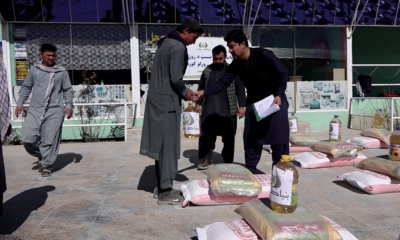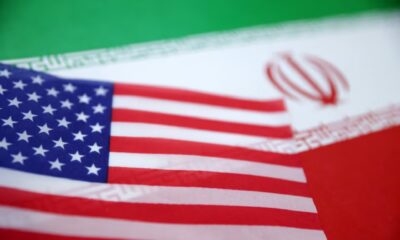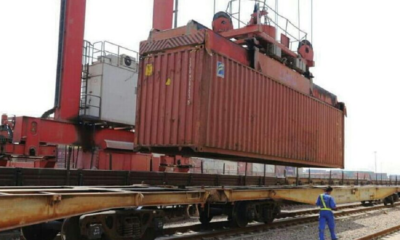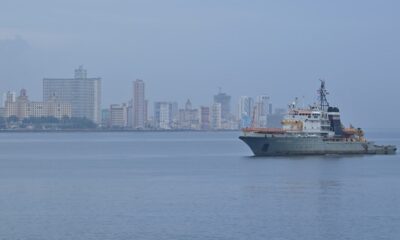Latest News
Taliban to form a 12-member council to run Afghanistan: Sources
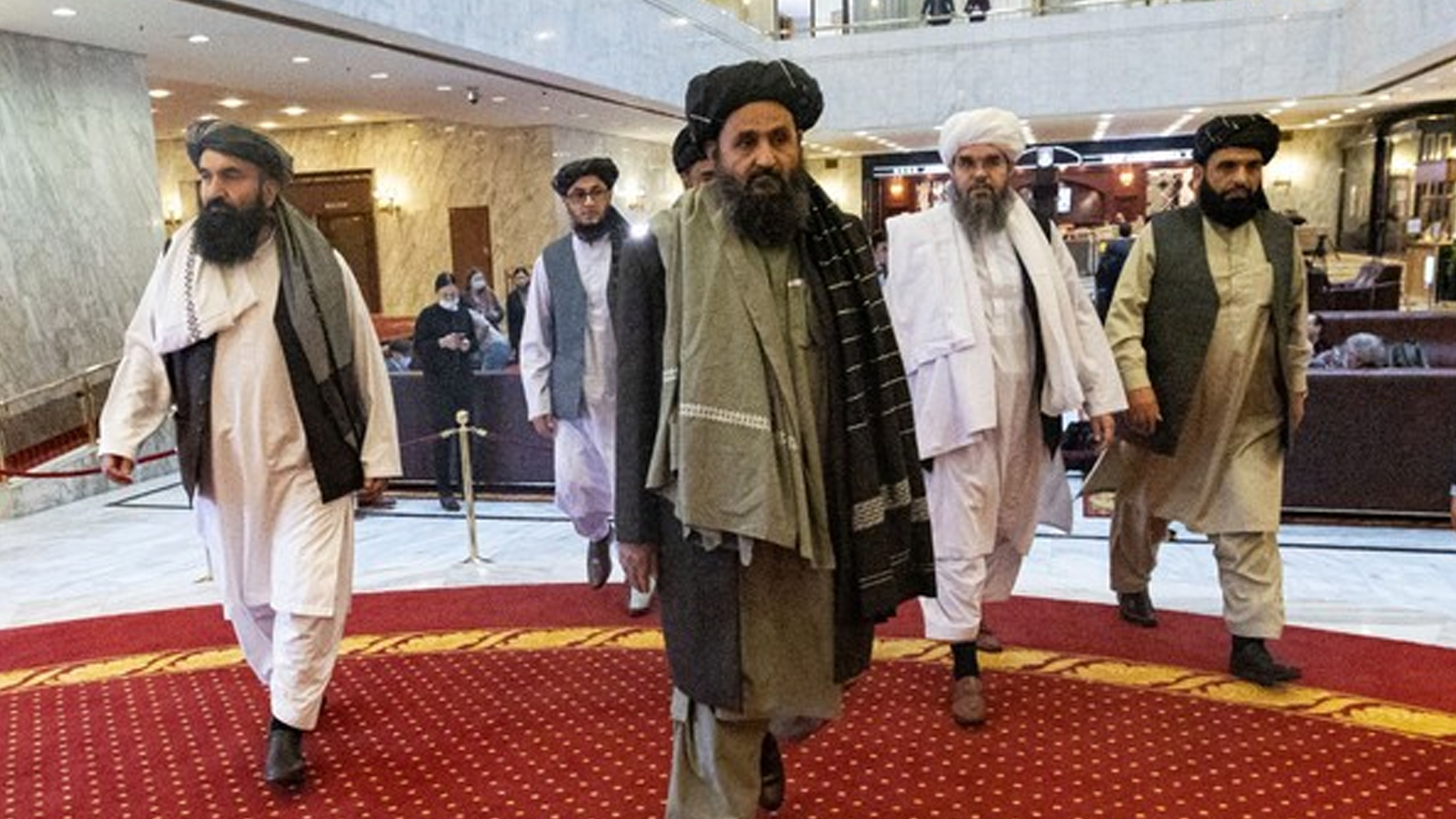
Sources close to the Taliban leadership told the American publication Foreign Policy that the group will form a 12-member council to run the country.
According to the report, Mullah Abdul Ghani Baradar, the Taliban’s political deputy; Mullah Mohammad Yaqub, the son of Mullah Mohammad Omar; and Khalil-ur-Rahman Haqqani, a senior member of Haqqani network will be included in the council.
“Our elders are busy. Consultations about a political system are underway. When we conclude our consultations, we will be witness to the system,” said Zabiullah Mujahid, a Taliban spokesman.
Hamid Karzai, Abdullah Abdullah and Gulbuddin Hekmatyar will also be members of this council, reports indicated.
“Mullah Barada can work with other partners to form a truly inclusive government,” said Sayed Hafizullah Naqi, a member of the leadership of Hezb -i- Islami.
According to the report, the Taliban are ready to give some members of the previous government some ministries as they want to form an inclusive government.
The Taliban, meanwhile, have said they will not form a government while the United States has a military presence in Afghanistan.
The Council of Shiite Ulema also reiterated the need for an inclusive government to be formed by the Taliban.
“Creating an Islamic system acceptable to all and forming an inclusive government is our desire,” said an Ulema member Sayed Hussain Alami Balkhi.
Afghanistan has been in a political and legal vacuum for ten days, with sources saying the Taliban will not announce the formation of a government until the withdrawal of US troops from Afghanistan is complete.
“A broad-based, comprehensive and inclusive Islamic system should be formed with the participation of all ethnic groups, brothers of Afghanistan,” said Mohammad Akbari, a member of the Shiite Council of Afghanistan.
In such a situation, one of the obstacles to forming an inclusive government with the Taliban is Ahmad Massoud’s opposition to the Taliban in Panjshir. Although political talks are ongoing to resolve the stalemate between the two sides, both sides have warned each other of the possibility of using the military option.
Latest News
Bayat Foundation expands Ramadan aid to families in Ghazni province
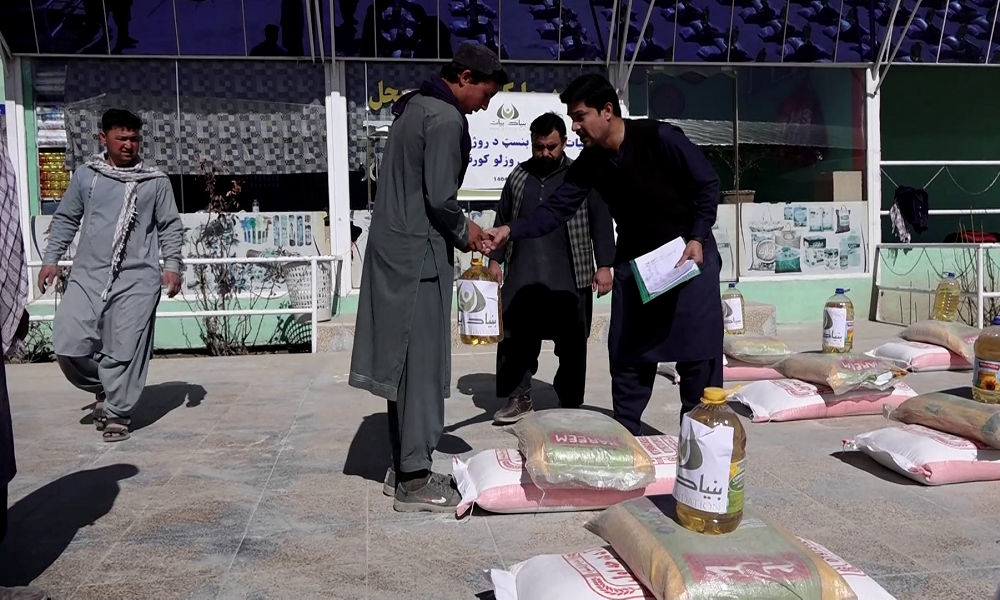
The Bayat Foundation has continued its Ramadan assistance campaign, distributing food packages to dozens of vulnerable families in Ghazni province, following similar efforts this week in Farah province.
The initiative forms part of the foundation’s broader humanitarian outreach during the holy month of Ramadan — a period marked by charity and community support — aimed at helping families facing severe poverty and economic hardship.
In Ghazni, aid packages containing flour, rice and cooking oil were distributed to underprivileged households after a needs assessment identified eligible beneficiaries, including migrant families and those without breadwinners.
Haji Mohammad Ismail, Deputy Head of the Bayat Foundation, said the Ghazni distribution is part of the organization’s annual Ramadan program carried out across multiple provinces.
“As part of the Bayat Foundation’s annual Ramadan assistance program, which is distributed every year during the holy month, we are pleased to be in Ghazni city today to distribute aid to a number of deserving migrant families,” he said, adding that the campaign is continuing in Kabul and other regions.
Earlier this week in Farah province, the foundation delivered similar food packages after survey teams assessed needs across various districts and villages.
Friadoon Abdullah, the foundation’s representative in Farah, said the aid was directed to the most vulnerable families identified through that process.
Established in 2006 by Dr. Ehsanullah Bayat, the Bayat Foundation is one of Afghanistan’s largest private charitable organizations.
Over the past two decades, it has implemented emergency relief efforts, seasonal food assistance programs, healthcare initiatives, educational support, and infrastructure projects, including the construction of mosques, health centers and schools, as well as providing access to clean drinking water in underserved communities.
Beneficiaries in Ghazni meanwhile expressed gratitude for the timely support.
“We are a family of six, we have no breadwinner, and we thank the Bayat Foundation for helping us,” said one recipient.
Another beneficiary said: “We are grateful to the Bayat Foundation for assisting us during the blessed month of Ramadan.”
Foundation officials say the Ramadan campaign will continue through the end of the holy month, with further distributions planned nationwide as part of its ongoing commitment to supporting vulnerable communities across Afghanistan.
Latest News
Iranian forces open fire on Afghan migrants, leaving dozens killed and injured

Dozens of Afghan migrants were killed or injured after Iranian forces opened fire on a vehicle carrying them in Sistan and Baluchestan province, local human rights group Haalvsh reported.
According to Haalvsh, the incident occurred on Tuesday, February 24, when Iranian forces chased the vehicle without issuing any legal warning to stop. The forces fired directly at the vehicle, causing it to overturn and catch fire.
Two people were killed, and more than 20 others were injured, six of them critically, the organization said.
International Sports
USA’s gold-medal Winter Olympics hockey game averages 26 million viewers
The contest, which began at 8:15 a.m. ET, was the most-watched sporting event on record in the U.S. with a start time before 9 a.m. ET, according to the Nielsen data.

The United States’ gold-medal victory against Canada on Sunday at the Milano Cortina Olympics averaged 26 million viewers in the U.S. on NBC and Peacock.
The 2-1 overtime win gave the Americans their first gold medal in men’s ice hockey since the 1980 Winter Olympics in Lake Placid, N.Y.
The North American audience when Jack Hughes scored the winning goal was nearly 35 million, including 8.7 million in Canada, per the Canadian Broadcasting Corporation.
The contest, which began at 8:15 a.m. ET, was the most-watched sporting event on record in the U.S. with a start time before 9 a.m. ET, according to the Nielsen data.
It also was the second most-watched hockey game in NBC history, trailing Canada’s overtime win against the U.S. in the gold-medal game at the 2010 Vancouver Games.
Overall, the Olympic Games in Italy averaged 23.5 million viewers in the U.S., a 96% increase over Beijing in 2022 and the most-watched Winter Olympics since 2014 in Sochi, Russia. – Reuters
-
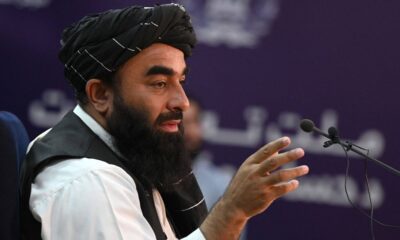
 Latest News5 days ago
Latest News5 days agoMujahid: Afghanistan will target perpetrators, not civilians
-
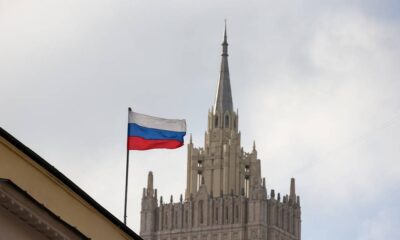
 Latest News4 days ago
Latest News4 days agoRussia estimates up to 23,000 terrorists present in Afghanistan
-
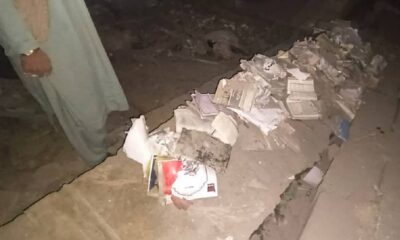
 Latest News5 days ago
Latest News5 days agoAfghanistan vows retaliation after Pakistan launches air strikes
-

 Latest News4 days ago
Latest News4 days agoIEA rejects Russia’s claims of foreign militants in Afghanistan
-
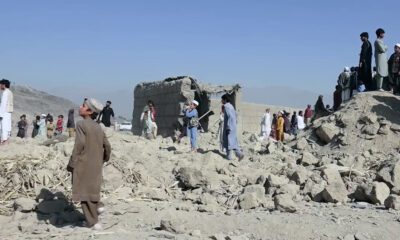
 Latest News4 days ago
Latest News4 days agoUNAMA reports civilian casualties from Pakistani airstrikes in Afghanistan
-
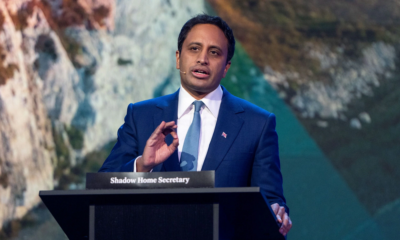
 Latest News4 days ago
Latest News4 days agoUK’s Reform party pledges visa ban affecting Afghanistan and five other states
-

 International Sports3 days ago
International Sports3 days agoAFC Champions League Elite gears up for Round of 16 as league stage concludes
-

 Sport2 days ago
Sport2 days agoRichard Pybus appointed as head coach of Afghanistan’s national cricket team




